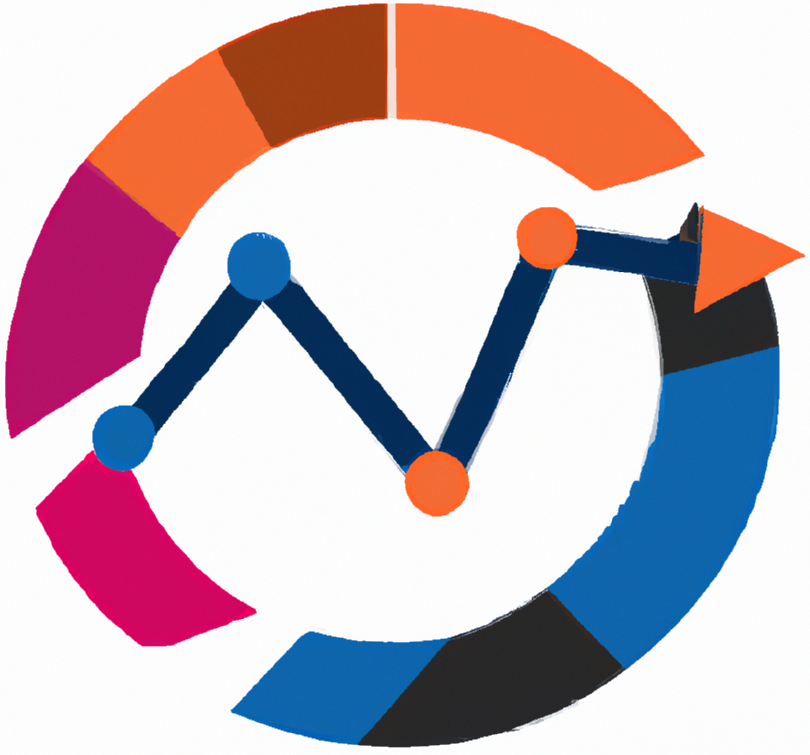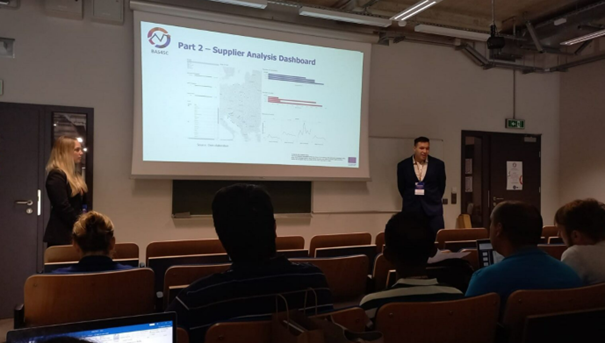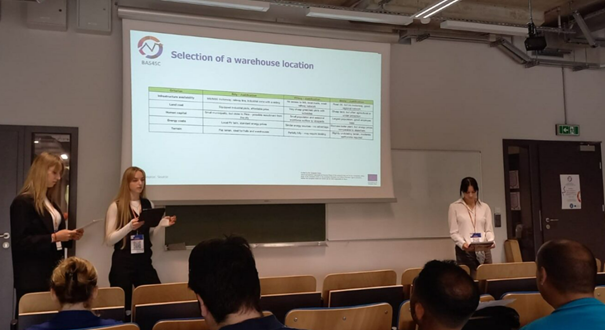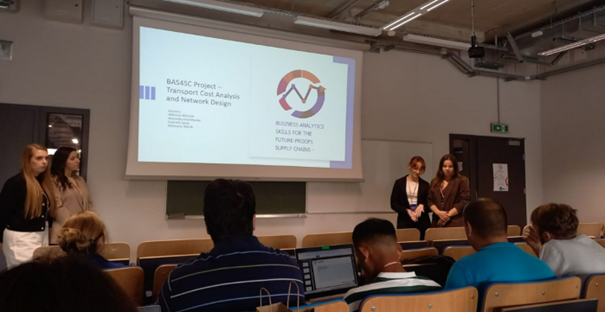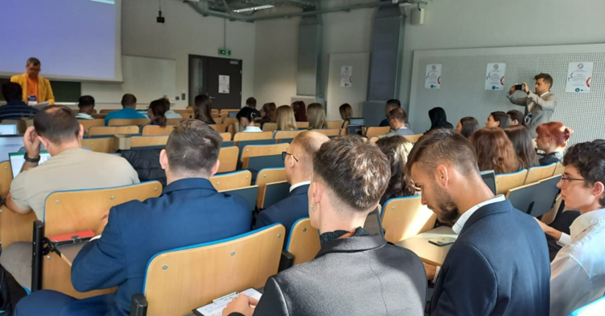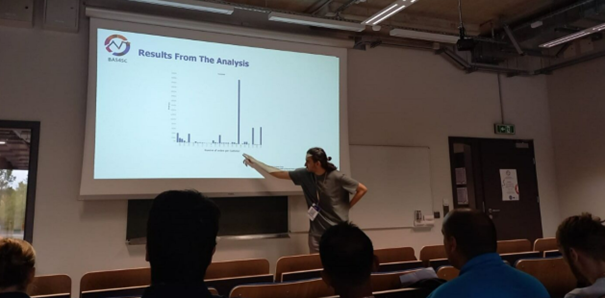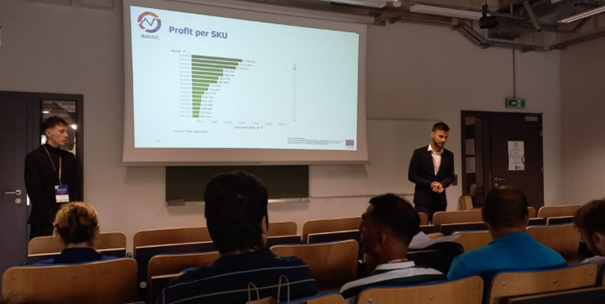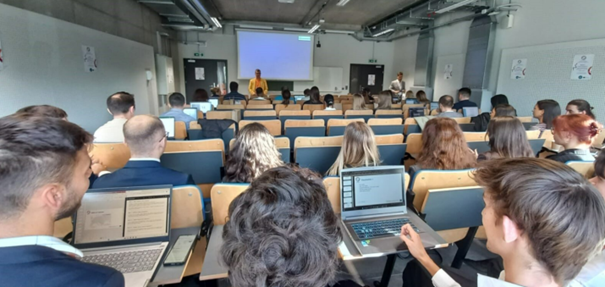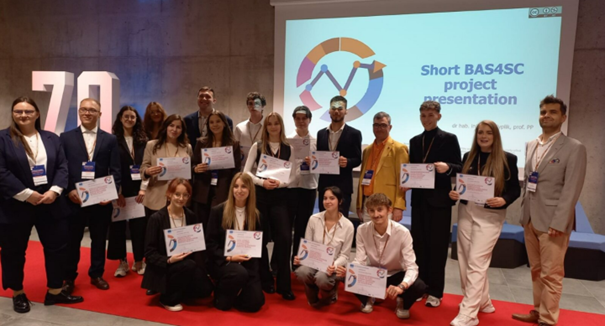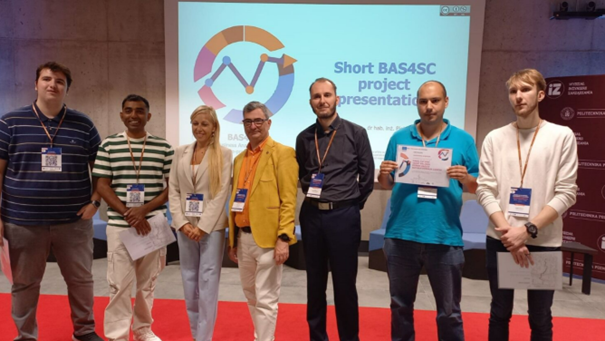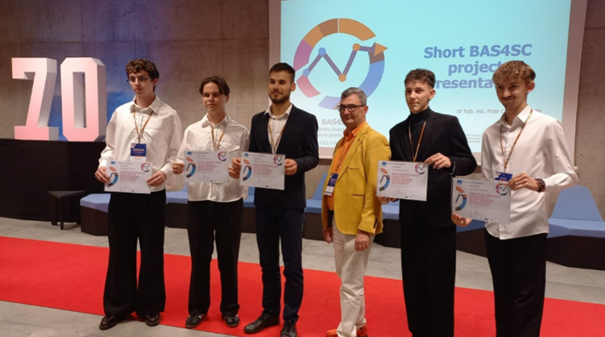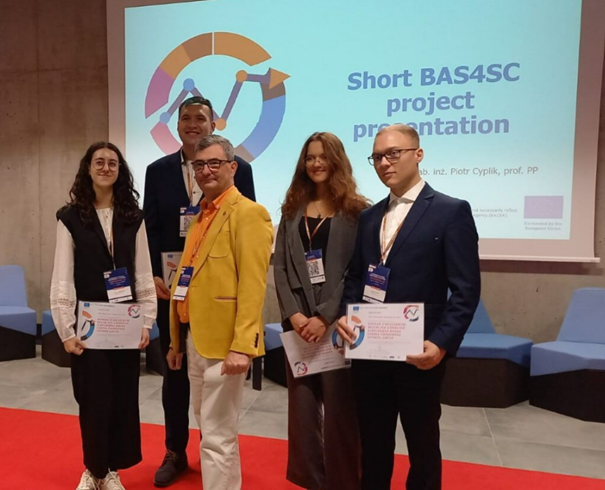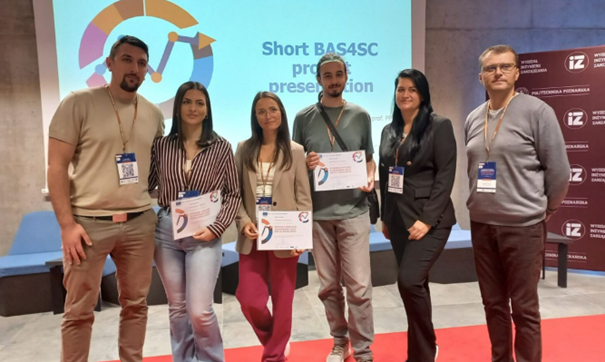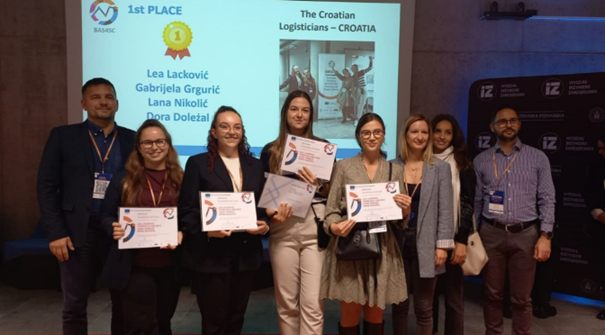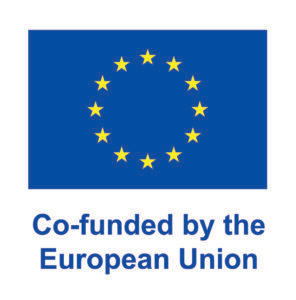Analytics in Action – BAS4SC Project Finale in Poznan
The Business Analytics Skills for the Future-proof Supply Chains (BAS4SC) project has reached its final stage. The concluding workshop was held on September 17–18, 2025, at Poznan University of Technology, featuring the grand finale of the BAS4SC competition (second and final stage) and a special session dedicated to the project’s results. The event brought together students, academics, and experts in business analytics and supply chain management from the project’s partner universities.
The first day of the meeting was devoted to the second stage of the BAS4SC competition, during which participants tackled tasks involving data analysis and decision-making in logistics environments. Following the competition, the jury evaluated the submissions and selected the winners.
The second day began with a meeting of the project partners, followed by a presentation session where students showcased their competition solutions. An expert panel discussion on “The Role of Business Analytics in the Development of Modern Supply Chains” provided a platform for exchanging views and insights.
The highlight of the event was the announcement of the BAS4SC competition results and a special session titled “Business Analytics Skills in Supply Chains.” During this session, research teams from partner universities presented papers addressing topics such as:
- identifying key analytical competencies in higher education,
- the use of business analytics in logistics,
- applications of machine learning and digital simulations in warehouse process management,
- managing inventory costs during seasonal demand fluctuations.
The conference and competition in Poznan marked the culmination of several years of collaboration within the international BAS4SC consortium, which has been working since 2023 to modernize supply chain management curricula by developing students’ analytical competencies.
